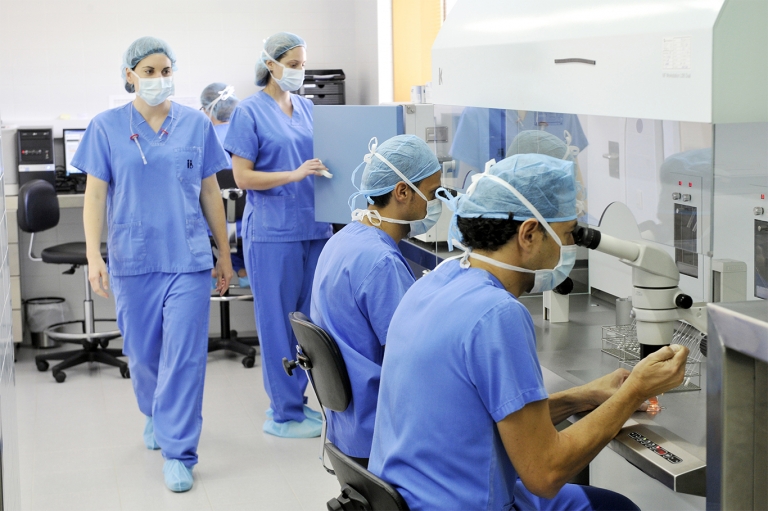
Double check. Safety in the in vitro fertilisation (IVF) laboratory
A recent news item generated alarm regarding safety procedures in in vitro fertilisation (IVF) laboratories. On this occasion, a hospital in Utrecht is currently investigating 26 potential cases of confusion as a result of insemination with semen samples from different patients. We say that making mistakes is only natural, but when we are working with gametes and embryos, the error rate must be zero.
This recent news instils fear in patients since they are not familiar with the safety measures present in IVF laboratories. This fear can generate a lack of confidence in the clinic and its staff. If we take into account that assisted reproduction treatment generates stress, news of this kind increases fears even more and generates even greater stress.
At Instituto Bernabeu, we know that the relationship between the couple and the clinic needs to be based on absolute confidence. This means that all procedures carried out at the clinic must have correct traceability in order to avoid errors of any kind.
Radio frequency systems are recently being incorporated into IVF laboratories in order to identify female and male gametes and the embryos that they generate. The samples taken from each patient are assigned a microchip with an identification barcode. As such, all material is labelled up until embryo transfer and/or vitrification.
However, the infrastructure and organisation of laboratories often makes using these systems difficult. Therefore, at Instituto Bernabeu we use the par excellence safety system which entails double-checking. The system consist of two members of staff always carrying out each critical step of the cycle. One of them carries out the laboratory process and the other supervises it in order to ensure traceability. From the point when the semen sample is collected, labelled and prepared, egg collection, insemination, micro-injection and transfer, as well as all the cryopreservation processes (freezing and defrosting) are carried out, double-checking guarantees that identification errors cannot occur.
Dr. Jorge Ten, Director of the Reproduction Biology Unit at Instituto Bernabeu
